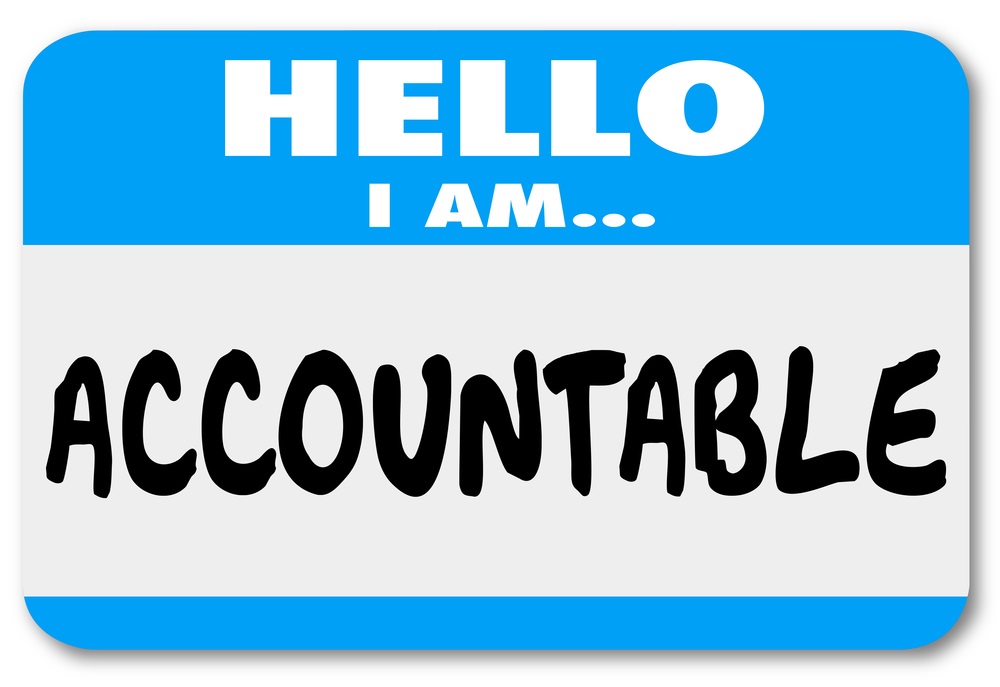The BLOG topic this month is “leading through year end crunch time”. The best method to manage your team’s performance is by giving immediate feedback. Therefore, the best way to effectively manage and monitor your team’s performance during the year-end crunch time is with intention and frequent accountability meetings (even remotely during the pandemic).
In theory, weekly accountability meetings with team members would be the perfect method and environment to ensure the team reaches its target. However, in practice, these meetings could potentially bring very little value and can take time away from work to attain goals.
Furthermore, there’s a real risk that your team members can perceive your well-intentioned efforts as micromanagement. The Journal of Experimental Psychology revealed that employees who believed they’re being micromanaged performed at a lower level. At a time when everyone’s contribution matters so much, this is something you cannot afford.
Holding Your Team Accountable
A team where most members perform well should yield successful results...right? Here are a few steps to ensure accountability during the year-end crunch.
Steps for Accountability During the Year-End Crunch
-
-
Set Clear Expectations- Yes, I’ve mentioned this before in my blogs as it really is important. Clear, measurable, goals reduce ambiguity. Agreement on expectations between yourself and individual team members creates accountability from “jump street” because there’s a personal level of involvement. There’s incentive to meet the expectations that each team member has agreed to. It’s sometimes called “having skin in the game”!
-
-
-
Discuss it- Talk with your team about accountability. Specifically, ask what steps the team should take as a unit to ensure accountability. Discuss it on an individual level too.
-
Provide Resources- If your team has communicated a need, do your best to meet that need. Expectations (agreed upon or not) are inherently high during crunch-time. And it goes both ways, managers expect more from employees and employees expect extra support and guidance. Provide your team members with the tools they need to go the extra mile.
-
Plan- Assist your team in creating an action plan. This facilitates a thorough discussion about the goal and steps that need to be taken to reach it. Additionally, when everyone provides input for the plan, accountability and expectations are clear.
-
Embed Accountability in your Company Culture
Don't limit accountability discussions to the year-end crunch. Embed it in your team and company culture. With accountability as a foundation in the culture, perhaps the year-end “crunch-time” will become a thing of the past!
The positive effects of accountability are known but it’s still not as common as you’d think. In an article in the Harvard Business Review, researchers revealed that the single biggest shortcoming discovered from a group of 5,400 upper-level managers, was not holding people accountable. It’s not hard to understand why. In addition to the extra time required, holding people accountable means you become the “enforcer”. This can create tension, resentment, and other personal and social consequences. Even so, somebody has to do it and “you. are. it.”
360 Reviews
A great way to implement accountability measures while reducing the effects is to employ real-time 360 reviews. A methodology where some or all employees review each other.
“Rather than have one person determine how well someone has performed once or twice a year, a real-time 360 relies on the perspectives of everyone that a person works and interacts with on an ongoing basis.” (Thomas Koulopoulos)
Smartly implemented, and with the right number of one-on-one meetings, this method is powerful. Done correctly, it builds very high levels of trust among the team. Not only can it embed and ensure accountability in teams and organizations, it provides real-time feedback, so issues can be addressed when they occur.
If you’d like to discuss how to increase accountability in your teams, contact me.

